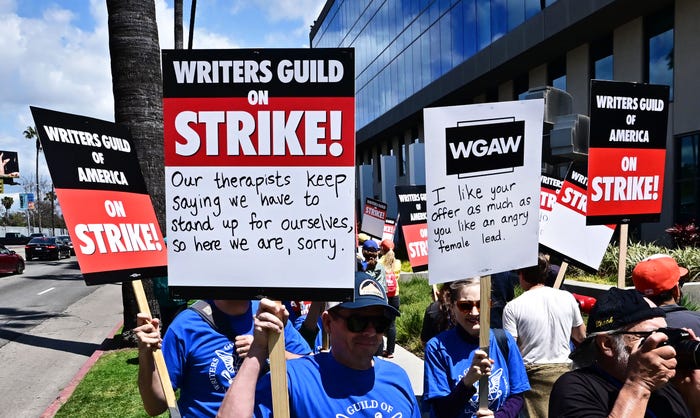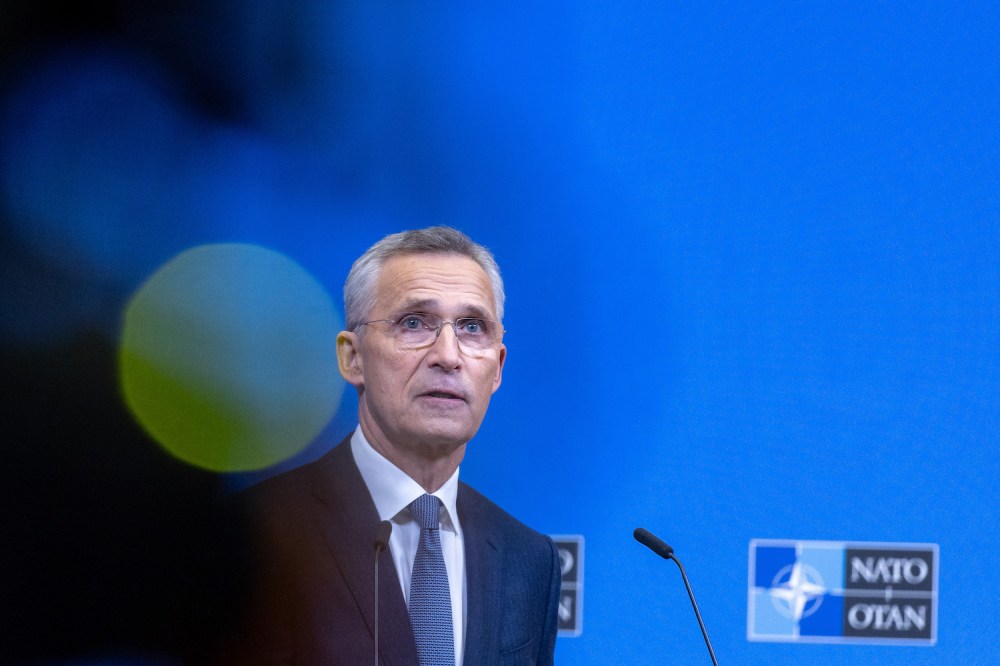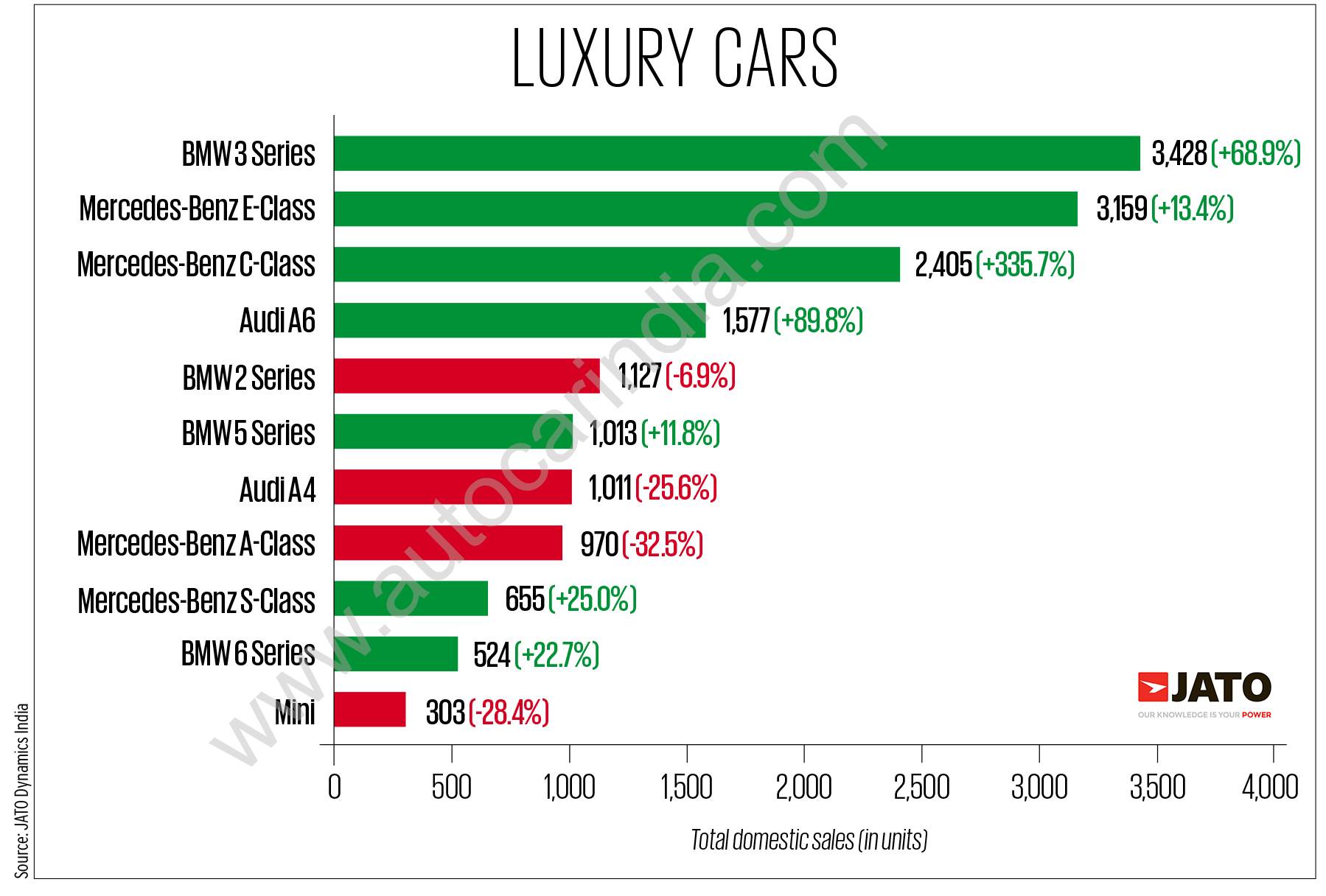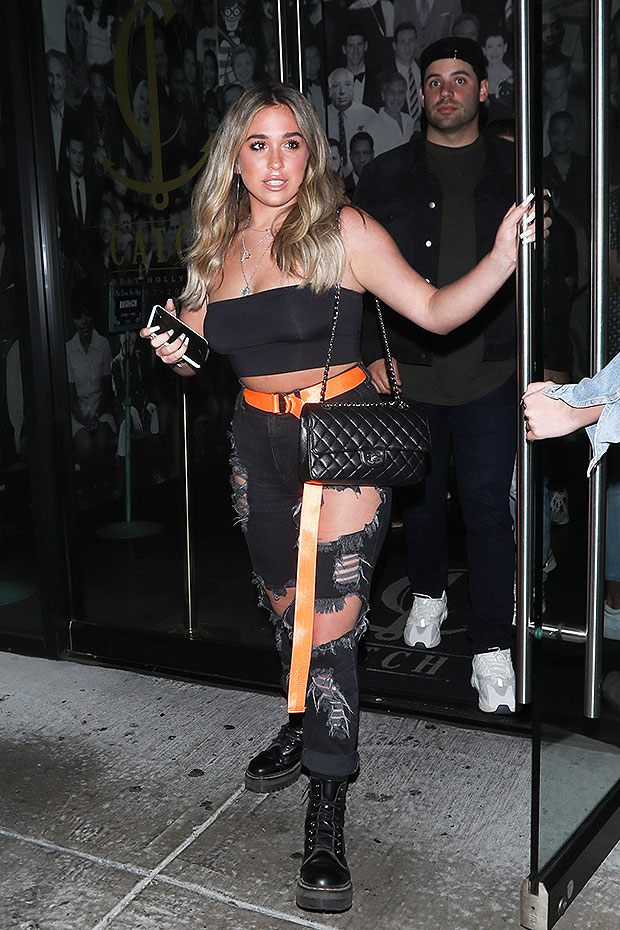Double Strike Cripples Hollywood: Writers And Actors Demand Fair Treatment

Table of Contents
The Core Demands of the WGA and SAG-AFTRA
The WGA and SAG-AFTRA strikes represent a unified front against what they see as exploitative practices within the entertainment industry, particularly concerning compensation in the streaming era and the growing threat of AI. Their core demands center around three key areas: fair compensation and residuals, the ethical use of AI, and improved working conditions.
Fair Compensation and Residuals in the Streaming Era
The shift from traditional television models to streaming has dramatically altered the landscape of compensation for writers and actors. While streaming services boast massive subscriber bases and generate billions in revenue, the traditional systems of residuals – payments made to writers and actors each time their work is shown – have been severely eroded. The lack of transparency in streaming revenue makes it nearly impossible to determine fair compensation.
- Diminishing residuals from streaming platforms: Streaming services often pay significantly less in residuals than traditional television networks, leaving writers and actors with far less income from their work's repeated broadcasts.
- Lack of profit participation in streaming successes: Even when a show is a massive streaming success, writers and actors often see little to no profit participation, unlike the traditional model where success translated into significantly higher residuals.
- Inadequate minimums for streaming projects: The minimum pay rates for streaming projects are often far lower than those for comparable traditional television work, leading to financial insecurity for many creatives.
The Threat of AI and its Impact on Creative Professionals
The rapid advancement of AI technology poses a significant threat to the livelihoods of writers and actors. Studios are increasingly exploring the use of AI to generate scripts, create voiceovers, and even produce deepfake performances. This raises serious concerns about job security, creative control, and the ownership of AI-generated content.
- Use of AI to write scripts: AI is being used to generate basic scripts, raising fears that human writers will be replaced with cheaper, AI-generated content.
- Use of AI to generate voiceovers and deepfakes: AI can mimic actors' voices and appearances, potentially reducing the need for human performers in certain projects.
- Concerns about ownership of AI-generated content: The legal and ethical questions surrounding the ownership and copyright of AI-generated content remain largely unanswered, further jeopardizing the rights of human creatives.
Working Conditions and Health & Safety Regulations
The entertainment industry is notorious for its demanding work conditions, and these conditions have been exacerbated by the pressures of the streaming era. Long hours, minimal breaks, insufficient compensation for travel, and a lack of adequate health and safety regulations on film sets are commonplace.
- Long working hours with minimal breaks: Writers and actors frequently work excessively long hours with inadequate rest periods, leading to burnout and health issues.
- Insufficient compensation for travel expenses: Many creatives are expected to cover their own travel and accommodation expenses, adding a significant financial burden to their already low pay.
- Lack of safety protocols on film sets: Film sets can be inherently dangerous environments, yet safety protocols are often insufficient, leading to accidents and injuries.
The Impact of the Double Strike on Hollywood
The double strike has brought the entertainment industry to a virtual standstill. The consequences are far-reaching, impacting not only the studios and production companies but also related businesses and the wider economy.
Production Halts and Economic Consequences
The strike has resulted in the halting of countless film and television productions, leading to significant economic losses. Studio budgets are frozen, and countless individuals across various support industries – from catering to transportation – are experiencing layoffs and financial hardship.
- Major film and television productions on hold: Blockbuster movies, popular television shows, and smaller independent projects are all affected, causing delays and potentially altering release schedules.
- Layoffs in related industries: The ripple effect extends to numerous supporting industries, resulting in layoffs for crew members, technicians, and other professionals who rely on the continuous flow of production.
- Economic ripple effects throughout the entertainment industry: The financial losses extend far beyond Hollywood, impacting related businesses and the broader economy. Estimates of daily financial losses are in the millions.
The Public's Reaction and Support for Striking Workers
Public opinion largely supports the striking writers and actors. The concerns over fair compensation, the ethical use of AI, and unsafe working conditions resonate with a significant portion of the public. Social media campaigns have amplified the workers' voices, garnering widespread sympathy and support.
- Social media support for the strike: Social media platforms have become crucial in disseminating information about the strike and mobilizing public support.
- Public sympathy for workers' concerns: The public largely understands the concerns of workers regarding fair pay, benefits, and job security in the face of technological advancements.
- Potential for long-term changes in public relations: The strike could lead to long-term changes in the relationship between Hollywood and the public, fostering a greater understanding of the challenges faced by creative professionals.
Potential Solutions and Future Negotiations
Resolving the double strike requires a multifaceted approach focusing on finding common ground between unions and studios. This involves addressing compensation, AI usage, and working conditions in a fair and sustainable manner.
Finding Common Ground Between Unions and Studios
Successful negotiation hinges on finding compromises that address the core concerns of both sides. This could involve implementing transparent revenue-sharing models, establishing stronger regulations on AI usage in filmmaking, and improving working conditions and safety standards.
- Transparent revenue-sharing models: A more transparent and equitable system for sharing streaming revenue is crucial to ensure fair compensation for writers and actors.
- Stronger regulations on AI usage in filmmaking: Clear guidelines on the appropriate use of AI in the creative process are needed to prevent the displacement of human talent.
- Improved working conditions and safety standards: Implementing stricter regulations on working hours, travel compensation, and safety protocols on film sets is essential to improve the lives of creative professionals.
The Long-Term Impact on the Entertainment Industry
The double strike's long-term impact on the entertainment industry could be substantial. It could lead to lasting changes in compensation structures, working conditions, and the role of AI in filmmaking. The power dynamic between studios and unions could shift significantly.
- Potential for new industry standards regarding compensation and AI: The strike could establish new industry-wide standards regarding compensation, residuals, and the ethical use of AI in filmmaking.
- Changes in the power dynamic between studios and unions: The strike could potentially shift the power balance between studios and unions, giving creative professionals a stronger voice in shaping the future of the industry.
- Long-term consequences for creative professionals: The outcome of this strike will have significant long-term implications for the working conditions, compensation, and job security of creative professionals.
Conclusion:
The Hollywood double strike is a watershed moment. The simultaneous walkout by writers and actors underscores systemic issues demanding immediate attention. Fair compensation in the streaming era, the responsible integration of AI, and improved working conditions are not mere bargaining points; they are fundamental to the health and future of the entertainment industry. The fight for fair treatment is a fight for the future of creative professionals. Only through effective negotiation and a commitment to addressing the core issues raised by the double strike can Hollywood ensure a sustainable and equitable future for all. Let's continue to advocate for fair treatment and a just resolution to this critical situation.

Featured Posts
-
 Cnn Anchor Reveals His Go To Florida Getaway
Apr 26, 2025
Cnn Anchor Reveals His Go To Florida Getaway
Apr 26, 2025 -
 Microsofts Vision A Design Chiefs Perspective On The Ai Era
Apr 26, 2025
Microsofts Vision A Design Chiefs Perspective On The Ai Era
Apr 26, 2025 -
 Selling Sunset Star Condemns Landlord Price Gouging Amidst La Fires
Apr 26, 2025
Selling Sunset Star Condemns Landlord Price Gouging Amidst La Fires
Apr 26, 2025 -
 Trump Casts Doubt On Ukraines Nato Prospects
Apr 26, 2025
Trump Casts Doubt On Ukraines Nato Prospects
Apr 26, 2025 -
 Chinas Impact On Luxury Car Sales Bmw Porsche And Beyond
Apr 26, 2025
Chinas Impact On Luxury Car Sales Bmw Porsche And Beyond
Apr 26, 2025
Latest Posts
-
 A Couples Alaskan Escape Ariana Biermanns Journey
Apr 27, 2025
A Couples Alaskan Escape Ariana Biermanns Journey
Apr 27, 2025 -
 Alaska Adventure Ariana Biermanns Romantic Trip
Apr 27, 2025
Alaska Adventure Ariana Biermanns Romantic Trip
Apr 27, 2025 -
 Ariana Biermann And Her Boyfriend Explore Alaska
Apr 27, 2025
Ariana Biermann And Her Boyfriend Explore Alaska
Apr 27, 2025 -
 Ariana Biermanns Alaskan Adventure A Romantic Getaway
Apr 27, 2025
Ariana Biermanns Alaskan Adventure A Romantic Getaway
Apr 27, 2025 -
 Find The Best Price For Ariana Grandes Lovenote Fragrance Set Online
Apr 27, 2025
Find The Best Price For Ariana Grandes Lovenote Fragrance Set Online
Apr 27, 2025
